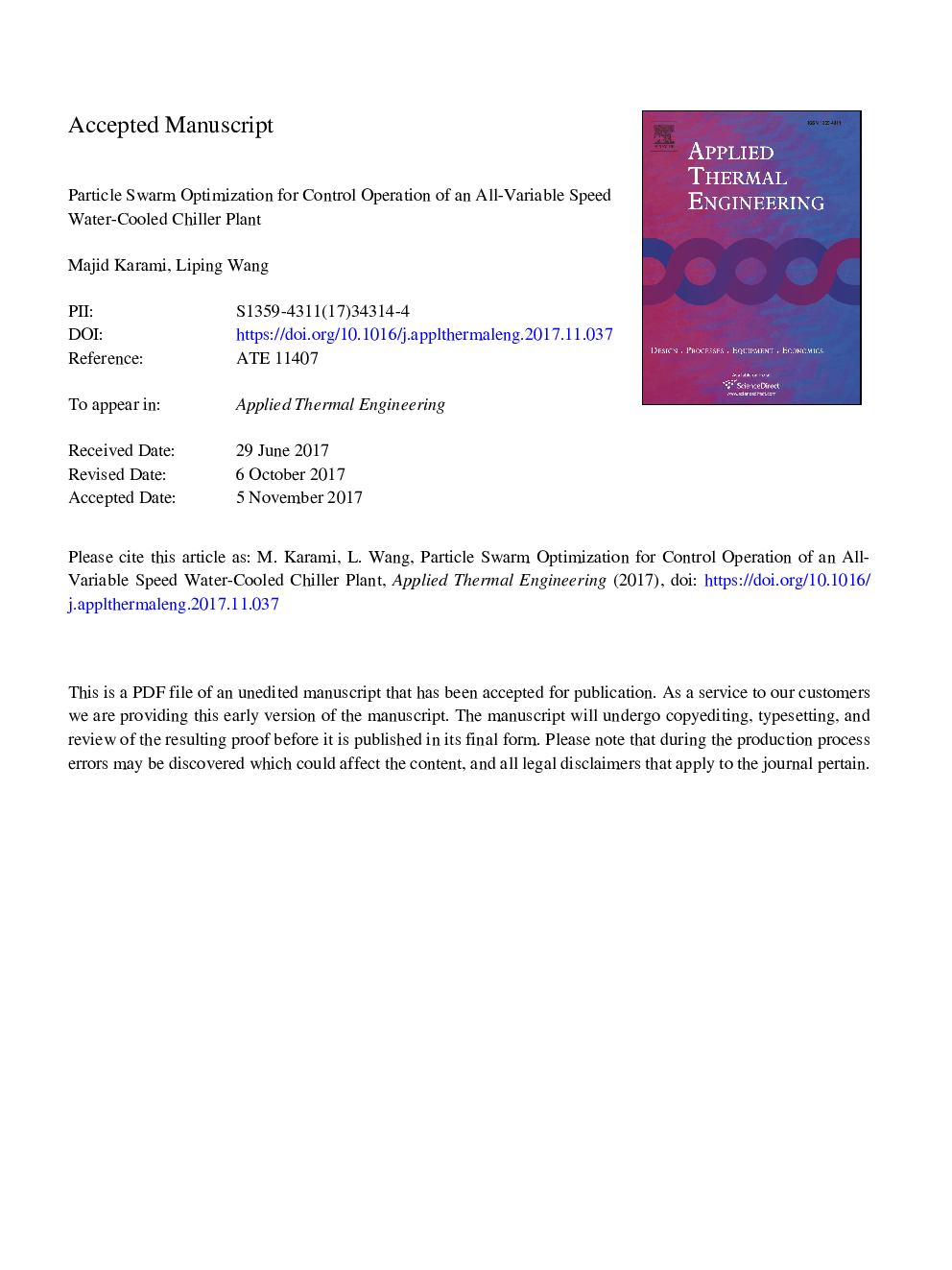| Article ID | Journal | Published Year | Pages | File Type |
|---|---|---|---|---|
| 7046475 | Applied Thermal Engineering | 2018 | 34 Pages |
Abstract
Variety of research studies have focused on developing energy-efficient control schemes for multiple-chiller plants. However, few studies have conducted optimization of the chiller plant with non-identical chillers based on dynamic energy modeling approach. A dynamic energy model with Modelica language for an all-variable speed primary-secondary water-cooled chiller plant was developed based on design submittals and operation control sequences and was calibrated using trend data. Then, Particle Swarm Optimization search algorithm was employed to find optimum value of control parameters for the chiller plant with non-identical chillers including chilled water temperature setpoint, condenser water temperature setpoint, and chiller stage sequence. The optimization results show that holistic optimization, which simultaneously optimizes all considered control variables for chiller operation, achieves the maximum savings: 10.5% of total chiller plant energy consumption on a hot day and 13.6% of total chiller plant energy consumption on a moderate day. The average daily chiller plant efficiency was improved from 0.59â¯kW/ton (COP of 5.96) to 0.53â¯kW/ton (COP of 6.64) in the hot day and from 0.70â¯kW/ton (COP of 5.02) to 0.59â¯kW/ton (COP of 5.96) in the moderate day.
Related Topics
Physical Sciences and Engineering
Chemical Engineering
Fluid Flow and Transfer Processes
Authors
Majid Karami, Liping Wang,
